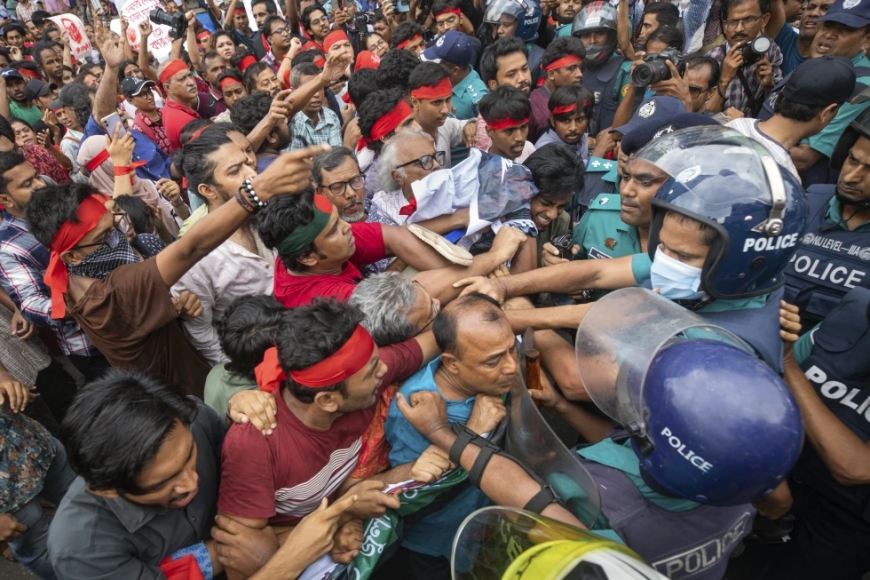In a significant escalation of its response to recent violent unrest, the Bangladeshi government has officially banned Jamaat-e-Islami, its student wing Islami Chhatra Shibir, and several affiliated organizations, labeling them as “militant and terrorist” entities. This drastic measure comes in the wake of widespread protests over a contentious government job quota system, which have resulted in over 200 deaths and injuries to thousands more.
Prime Minister Sheikh Hasina, along with her political allies, has accused Jamaat-e-Islami of inciting and orchestrating the violent clashes that erupted in mid-July. The Ministry of Home Affairs announced the ban under the country’s anti-terrorism laws, emphasizing the need to curb what it describes as militant activities linked to these groups.
Since the onset of the protests on July 15, more than 10,000 individuals have been detained nationwide, reflecting the scale of the government's crackdown. The recent violence has also seen at least 211 fatalities, with both protestors and security forces suffering casualties.
Jamaat-e-Islami’s leader, Shafiqur Rahman, has condemned the ban, labeling it as unconstitutional and accusing the government of attempting to suppress dissent. “The government has orchestrated massacres through its cadres and law enforcement to crush a non-political student movement,” Rahman stated, accusing the authorities of genocide. He claimed that the government’s actions were a cover-up for its own excesses.
In response to the ban, Prime Minister Hasina warned that should Jamaat-e-Islami or its affiliates attempt to operate clandestinely, they would be treated as militant groups. This warning underscores the administration's intent to prevent any resurgence of violence or illegal activities linked to the banned organizations.
The recent ban builds on a series of restrictive measures against Jamaat-e-Islami, which has been barred from participating in national elections since 2013. The party’s registration was revoked by the Election Commission, a decision later upheld by the High Court, which ruled that the party’s constitution contravened the principles of secularism enshrined in the national constitution. Despite this, the party was allowed to conduct certain political activities until the Supreme Court reaffirmed the ban in 2023.
Jamaat-e-Islami, founded in 1941 during British colonial rule, has been a controversial figure in Bangladeshi politics, particularly due to its opposition to the country's independence during the 1971 Liberation War. The party’s involvement in the war, including the formation of militia groups that supported Pakistani military operations, has led to significant legal and political repercussions. Many of its senior leaders have faced legal consequences for war crimes committed during the conflict.
The current unrest and subsequent crackdown have intensified scrutiny on Prime Minister Hasina’s administration, which faces criticism from global human rights organizations for alleged authoritarian practices and suppression of political dissent. The government's recent actions continue to attract both national and international attention, highlighting ongoing tensions in Bangladesh’s political landscape.
As Bangladesh navigates this turbulent period, the impact of the ban on Jamaat-e-Islami and the broader implications for political stability in the country remain to be seen














































